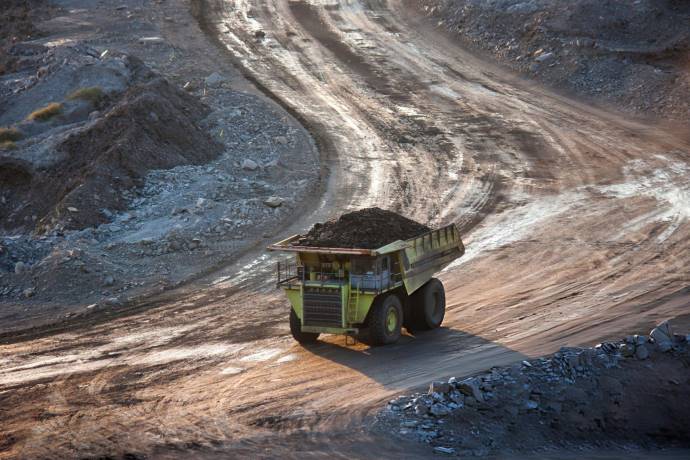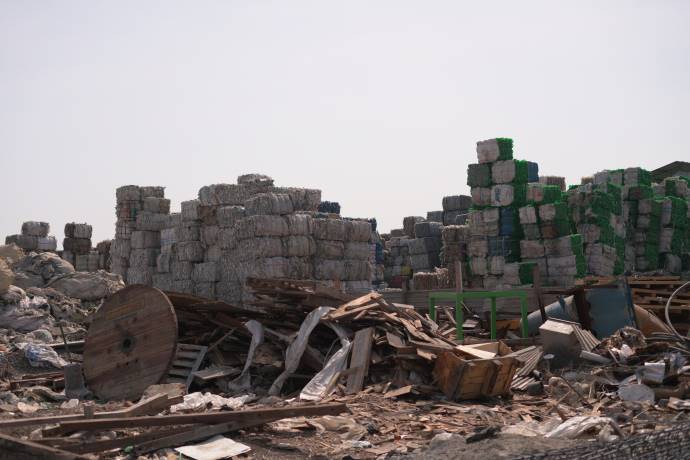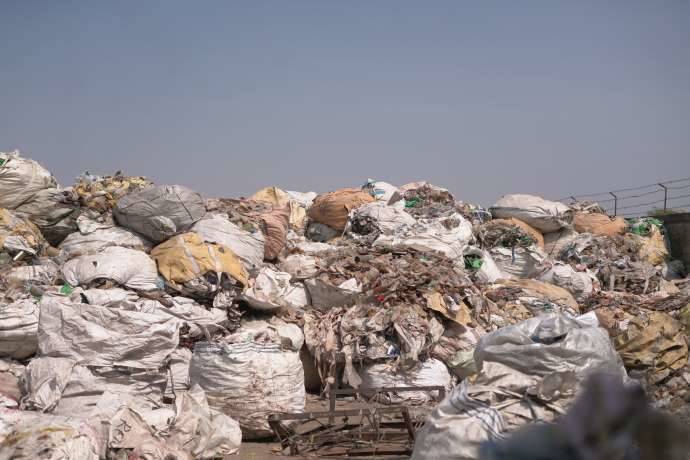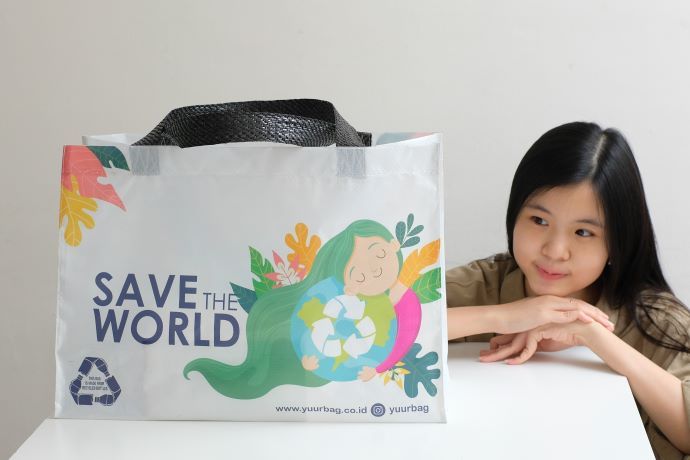More Sustainable by Recycling Plastic Bottles
Key Takeaways:
- Ocean Bound Plastic refers to plastic waste near coastlines—within 5 km—that is highly likely to enter the ocean due to poor waste management or environmental factors.
- Langgeng Jaya Group plays a leading role in Indonesia’s fight against Ocean Bound Plastic by recycling large volumes of plastic waste into high-quality rPET and rHDPE products.
- Through certified processes and collaboration with local collectors, Langgeng Jaya promotes a circular economy while helping to protect marine ecosystems.
What is Ocean Bound Plastic?
The
term Ocean Bound Plastic was first
introduced by Assistant Professor of Environmental Engineering at the
University of Georgia, Jenna Jambeck, in 2015. In her publication
in Science, she examined how much plastic waste from land is
carried into the ocean. Since then, plastic waste in coastal areas has been
widely recognized as Ocean Bound Plastic.
Ocean Bound
Plastic refers to plastic waste on land that is at high risk of entering the
ocean due to human activities or natural factors. This waste includes
fragmented plastic particles as well as solid plastic waste such as plastic
water bottles, shampoo bottles, oil containers, and many other plastic
products. Ocean Bound Plastic can be found within 5 kilometers of
coastlines and extends all the way into the open sea.
This growing
crisis has prompted researchers, environmentalists, and industry leaders to
seek sustainable solutions to mitigate its impact.
Why Does
Ocean Bound Plastic Happen?
The primary
reason for plastic waste spilling into the ocean is poor waste management from
both individuals and industries. According to Jenna Jambeck’s research,
in 2010 alone, 8 million tons of plastic waste
from land-based activities within 50 km of coastlines ended up
in the ocean. This is equivalent to five plastic bags filled with plastic waste
for every inch of the world's beaches.
“This is a
massive amount of plastic waste,” noted Jambeck, emphasizing the need for policy
changes and industrial efforts to significantly reduce plastic
pollution.
Langgeng
Jaya Group's Commitment to Ocean Bound Plastic Reduction
Recycling
organizations play a crucial role in minimizing Ocean Bound Plastic. Langgeng
Jaya Group is at the forefront of this initiative. Aligning with
global sustainability goals, we are committed to expanding our plastic waste
management capacity in Indonesia through technological
innovations in recycling machinery.
By
transforming various types of plastic waste into high-quality recycled
products, Langgeng Jaya Group serves as an eco-friendly alternative to the
virgin plastic industry. Our strict high-standard recycling procedures help
efficiently reduce Ocean Bound Plastic, contributing to a cleaner and more
sustainable environment.
Our
Recycling Achievements
rPET
Production
We take
pride in being Indonesia’s largest producer of rPET
Flakes, having successfully recycled 72,000 tons of
plastic drinking bottles in 2021 alone.
rHDPE
Production
To combat
plastic pollution, we have recycled 7,200 tons of plastic
waste, including oil bottles, shampoo bottles, and beauty product containers,
converting them into rHDPE Pellets.
Beyond rPET
and rHDPE, Langgeng Jaya Group also produces a variety of recycled
plastic pellets used in semi-finished and finished products such as:
- Polyester Staple Fiber (PSF)
- Padding materials
- Woven bags
- Planter bags
- Eco-friendly shopping bags
This product
diversification inspires other industries to adopt sustainable raw
materials for their production needs.
Plastic
Bottle Recycling Process at Langgeng Jaya Group
Langgeng Jaya Group is proudly registered with the Zero Plastic Ocean certification program, reinforcing our commitment to reducing Ocean Bound Plastic in Indonesia.
We ensure 100% recycling of
industrial-grade Ocean Bound Plastic, adhering to internationally recognized
standards.
To support sustainable practices, we collaborate with Ocean Bound Plastic collectors and offer competitive exchange rates, promoting a circular economy while helping to protect our oceans.



